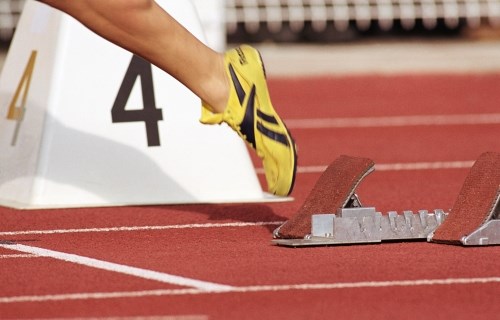Russia on the offensive against doping critics
Shortly before the IAAF Council meets in Vienna to decide if Russian athletes can participate in the upcoming Olympic Games in Rio, Russia has started reacting against the fourth documentary on doping in Russian sport, made by German broadcaster ARD.
The most recent programme by the German investigative journalist Hajo Seppelt, “Doping - Top Secret: Showdown for Russia”, was aired on June 8. The documentary shows new doping allegations against Russian sport claiming that two banned coaches are still working with the Russian elite athletes and that the Russian sports minister, Vitaly Mutko, could have been involved in a cover-up of positive doping tests of a leading Russian football player.
According to The Guardian, the IAAF is investigating “as a matter of urgency” the claims presented in the German documentary while the Ministry of Sport of the Russian Federation released an official comment dismissing the main allegations.
According to the statement (full version in Russian only) neither of the trainers who were dismissed from their posts are involved in the work with the national teams of the Russian Federation and are not financed by the government.
The Russian statement also casts doubts over one of the key sources, the former director of the Moscow anti-doping laboratory, Grigory Rodchenkov, saying he is “the person, who is involved in the covering up positive doping tests and in the distribution of doping for personal gain”. Rodchenkov already acknowledged his own involvement in cheating when launching severe allegations against the Russian doping practices in an interview with The New York Times.
The ministry of sport says it does not have any information or details about the accusations concerning football that appeared in the documentary. But according to the Russian TASS News Agency, sport minister Vitaly Mutko denies his involvement in the alleged doping case:"It’s a targeted attack against Russia, calm and well-organised. Rodchenkov works for the people that have given him refuge," Mutko said without specifying who was behind the attacks.
Interview attempt exacerbates relations
An interview with Hajo Seppelt carried out by Russian state television channel Rossia has further intensified the tense relations between the German media and the official Russia.
According to Frankfurter Allgemeine Zeitung (FAZ), the Russian journalist, Olga Skabeyeva, demanded to see the proofs behind the recent documentary and later insinuated that Seppelt had personal resentments against Mutko as well as Russia. The interview was tense and after a series of what Seppelt regarded as inappropriate questions, he decided to suspend the interview and told the TV crew to leave. Seppelt commented on the incident on his Twitter account: “It was simply a perfidious attempt of RUS media to discredit and undermine our research. It will not hinder us to continue necessary work”.
Russian state-owned news website Vesti reported that Seppelt allegedly threatened Olga Skabeyeva and her crew. A Rossia 1 clip from the video shows part of the interview and an angry Seppelt pushing Skabeyeva out of the hotel room, however, without clearly representing the entirety of the situation. According to Seppelt’s tesminomy to FAZ, he got angry when the TV crew continued filming half an hour after he asked them to leave.
A spokeswoman from the Russian Foreign Ministry, Maria Zakharova defended the Russian TV crew, saying that Seppelt “not only attacked a journalist, but moreover a representative of the weaker sex,” referring to Skabeyeva, writes AFP.
According to the German media outlet Focus.de, after the conflict between the doping expert and Russian journalist, WDR confirmed the juridical procedure against the Russian TV channel Rossia1. A WDR spokesperson commented: “The interview with Hajo Seppelt which was broadcasted on the Russian TV channel Rossia was shown without neither of his (Seppelt) nor of WDR approval”.
New platform for whistleblowing in sport
Earlier, Hajo Seppelt announced the establishment of a new platform for whistleblowing in sport called sportleaks.com. It is a secure global platform where whistleblowers can leave information and files for investigative sports journalists around the world.
Seppelt has based his four documentaries on doping in international and Russian athletics on the accounts of whistleblowers. Especially the Russian couple Vitaly and Yuliya Stepanov, whose testimonies on systematic doping practices in Russian sport have been decisive in unfolding a scandal, which has led to WADA and IAAF investigations.






